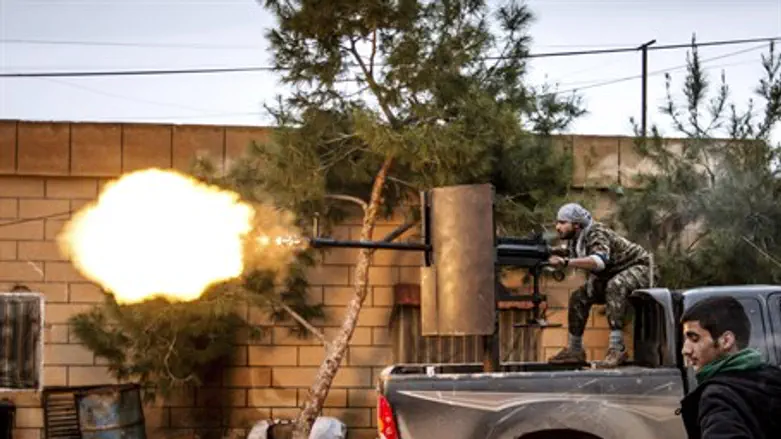
Kurdish forces have driven the Islamic State group from more than a dozen Assyrian Christian villages that the jihadists had captured in northeastern Syria, a monitor said Wednesday.
"Following a 10-day offensive, Kurdish fighters took control early this week of 14 Assyrian villages that IS had controlled since February," said Rami Abdel Rahman, director of the Syrian Observatory for Human Rights.
Assyrian Christians, who are from one of the world's oldest Christian communities, have been under increasing threat since IS seized control of large parts of Syria.
Thousands of Christians fled an assault by the jihadists in the northeastern province of Hasakeh in February after a spate of kidnappings by IS, which is still holding 210 Assyrians hostage.
Assyrians number about 30,000 among Syria's 1.2 million Christians and mostly live in 35 villages in Hasakeh, all of which are now held by Kurdish or regime forces.
Osama Edward, head of the Sweden-based Assyrian Network for Human Rights, said that the Kurds' recapture of the villages "was made possible by intense raids by the international coalition" led by the United States against IS.
He said that photos "show a lot of destruction of houses and churches".
"Most people are afraid to return because they fear that IS booby-trapped their houses before fleeing," he added.
The Observatory also reported that Kurdish militia took control of the strategic village of Al-Mabrukah, southwest of the flashpoint town of Ras al-Ain on the Syrian-Turkish border.
According to Abdel Rahman, the Kurdish advance could also open the road towards Tal Abyad, a border town used by IS as a gateway from Turkey.
Over the course of 20 days, the Kurdish People's Protection Units (YPG) seized control of 4,000 square kilometers of territory from IS in Hasakeh province, Abdel Rahman said.
The extremist group's areas of control in Hasakeh are now limited to the province's southern fringes and the border with neighboring Raqqa, he added.
Also on Wednesday, a rights group said the border town of Kobane - where Kurdish forces backed by US-led air strikes pushed back IS in January - was a "city of rubble."
Handicap International said four months of fighting and air raids had destroyed 80 percent of Kobane and left its neighborhoods riddled with unexploded devices and booby traps.
"What we saw in Kobane was beyond our worst nightmares: a significant part of the city is vastly destroyed and unexploded weapons contamination of all kinds have reached a density and diversity that has been hardly witnessed before," said Frederic Maio, who heads the group's mine action programs.
The rights group called for the removal of weapons and rubble and for civilians to be educated on the danger of unexploded devices when returning to their homes.
Syria's conflict began in March 2011 with anti-government protests but evolved into a complex, multi-front war that has left at least 220,000 people dead.
